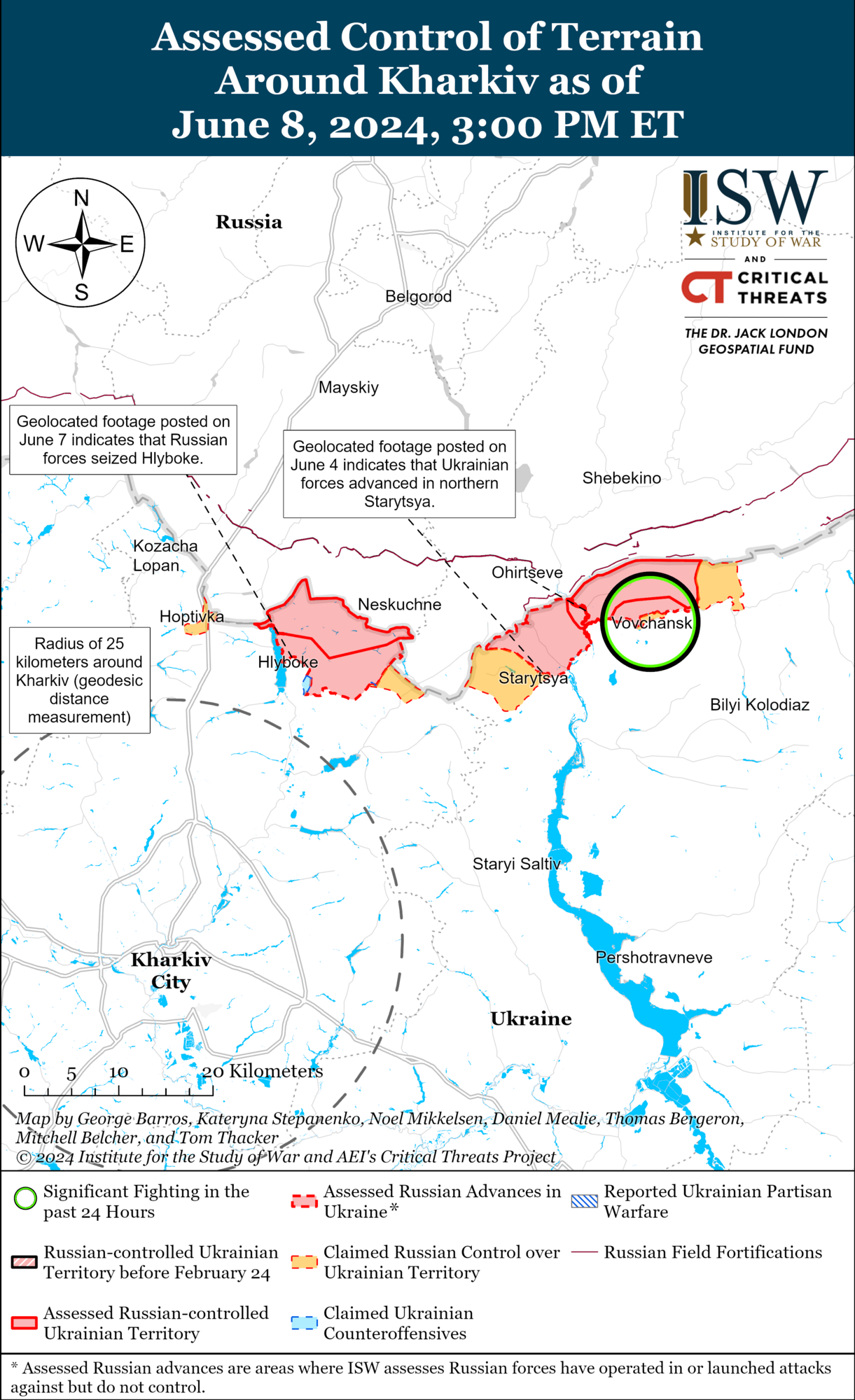War in Ukraine
Russia moves additional units to the border with Kharkiv region: ISW assessed the enemy's capabilities for a big offensive
The command of the Russian occupation forces is redeploying an unspecified number of soldiers to the border with the Kharkiv region of Ukraine. It is not yet clear whether it plans to immediately use them for combat operations in this area or simply to strengthen the northern group of forces to bring it closer to its planned final strength.
This is stated in the report of the Institute for the Study of War (ISW) that indicated which elements the enemy is bringing to the Ukrainian border. The analysts emphasized that the aggressor country still lacks the strength to conduct large-scale offensives in several areas of the front.
They recalled the words of Apti Alaudinov, commander of the "Akhmat" Chechen special forces, who said in an interview with propagandists that the Russian authorities decided to move their units to the Kharkiv direction from unspecified areas in late May. He said that his men from the Kashtan (formerly Kamerton) unit are currently operating there.
The spokesperson for the Khortytsia group of Ukrainian troops, Lieutenant Colonel Nazar Voloshyn, confirmed that the occupiers from this Russian "special forces" act as blocking units. That is, the enemy uses them as specialized disciplinary units that kill Russians in the event of an unauthorized retreat in the international border area. Therefore, it is possible that the Russian military command deployed Akhmat forces to the Kharkiv region solely for this purpose, not to conduct offensive operations.
Voloshyn also emphasized that the Russian Armed Forces command is increasing the grouping of troops in the border area by redeploying units of unspecified regiments and brigades from other parts of the front, in particular from the occupied part of Kherson region. According to him, it intends to involve unspecified units of airborne troops and additional formations of the 11th and 44th Army Corps (both from the Leningrad Military District) in the offensive in unspecified areas of the border zone.
The ISW reports that these elements of the terrorist army are currently conducting offensive operations in the north of Kharkiv region, and a battalion of the 98th Airborne Division of the Russian Federation is operating in the border area of the Kursk region of the Russian Federation.
On June 8, the Ukrainian National Resistance Center also stated that the Russian military command was redeploying unspecified units and drone operators from the Kherson direction to the Kharkiv direction. It is noted that when the Russian Federation launched offensive operations on May 10, there were about 35,000 occupants near the border as part of the Northern Group of Forces. However, it was previously stated that the Russian army command sought to concentrate at least 50,000-70,000 personnel there by early May.
"It is unclear whether Russian troops have changed the planned final size of the northern group of troops since the start of the offensive in the north of Kharkiv region. But a Russian blogger said on June 6 that the command had only allocated about 15,000 personnel for this purpose," ISW noted.
According to analysts, Russia is recruiting 30,000 new soldiers a month. This was confirmed by Russian dictator Putin himself, who said on June 7 that 160,000 occupiers had joined the ranks of his terrorist army in 2024.
It is also noted that the Russian army has used its partial success along the entire front to determine the pace of fighting in Ukraine in recent months, but this has resulted in losses roughly equal to or slightly less than the pace of formation of its new forces. To maintain this "balance," the aggressor needs to avoid intensifying offensive operations for a long time, and this is impossible given the ratio of losses and recruitment of new soldiers only.
Therefore, the ISW continues to believe that the planned Russian reserves of the operational and strategic level are unlikely to be ready to act as a first echelon breakthrough force or a second echelon force capable of conducting effective large-scale general military attacks.
"These limited operational and strategic level reserves are likely to be insufficient to support a simultaneous major offensive effort in several directions. The Russian military command will have to choose one main sector during the expected summer offensive if it intends to use these reserves for a large-scale offensive," the analysts concluded.
As reported, Bloomberg wrote that the Russian army has achieved only limited success on the battlefield during several months of active offensive operations. Now, the troops of the aggressor country, the Russian Federation, are beginning to lose their advantage and the time for a significant breakthrough is quickly running out.
Only verified information is available on our Telegram channel OBOZ.UA and Viber. Do not fall for fakes!




























